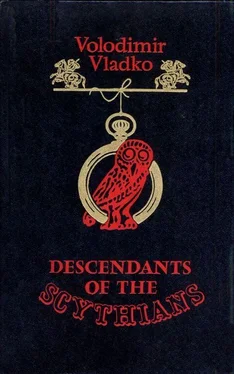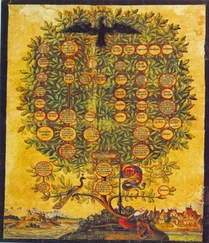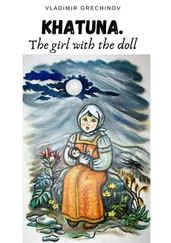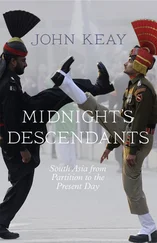But there was one person hiding in the rocks whose mind was occupied with matters very different from the impending battle with the soldiers of Dorbatay and Hartak! This person was, of course, none other than Dmitro Borisovich! The enthusiastic archeologist had stopped thinking about his mastery of the battle axe. Neither was his participation in the forthcoming battle — “my personal and direct involvement,” as he put it — of much concern to him. His attention was riveted to the scene unfolding below. He wanted to weep with disappointment that he had lost his camera in that cursed cave! It was an outrage not to be able to capture on film everything he had been privileged to see! What a vexation to be left only with some rather blurred mental pictures imprinted on the memory!
The burial of the Scythian chieftain, the obsequies, carried out in full accordance with the sacred traditions of the tribe! An archeologist’s dream, to be sure! Quite naturally, Dmitro Borisovich could not take his eyes off the scene. Even Artem, who, though he was not an archeologist, shared much of Dmitro Borisovich’s enthusiasm, for he was impressed by the unusual, striking sight.
The burial was to take place on a flat stretch of the ground, flanked on one side by the cliffs and locked in on all the other sides by the curve of a quietly flowing, rather wide river. The Scythians called the river “Borysthenes,” but Dmitro Borisovich explained the name to Artem:
“The real Borysthenes, the one Herodotus wrote about, is, of course, the Dnieper of our days. The river we see here is just an underground stream that empties into some underground lake which must be of quite a size, too. And again, of course, this lake would have nothing whatsoever to do with the Pontus of Euxine, that is, what we now call the Black Sea. Incidentally, our hypothetical underground lake would be very much below sea level…”
This last observation was self-evident and did not call for any explanation. The archeologist went on:
“The tribe of the Scythian nomads that wandered into this underground cavity a very long time ago and was forced to stay…”
“So, you support the theory Ivan Semenovich put forward to explain the Scythian presence here?” Artem interrupted him.
“We haven’t come up with any other plausible theories so far. So, as I was saying, this tribe, cut off from the surface, must have preserved the ancient geographical names and applied them to their new environment. The Scythians, Herodotus tells us, had many legends concerning the Borysthenes, and these stories must have been passed down from generation to generation. When these underground Scythians came upon this river, they, quite naturally, invested it with such a glorious name. That’s all. And, as this funeral is also part of the ancient tradition, the tribe picked this spot, associating it with the legendary Gerrhus, as a burial place for their chieftains.”
“Yes, all this is very interesting, and no doubt very important,” Artem said impatiently. “I am quite sure that everything you say is true, but there’s something else that’s worrying me at the moment…”
But glancing at the archeologist, Artem stopped, as he saw that Dmitro Borisovich was not listening, so absorbed he was in the ceremony below. Artem was more concerned with the following:
Suppose in the general uprising Lida and Ivan Semenovich were set free. So far so good. What next? Varkan was no doubt an excellent person, and Ronis, too. So after the uprising, they would feel quite safe among the Scythians; that was obvious. But the most important question remained: what next? Wasn’t it high time to start looking for a way back to the surface? Hadn’t they had enough adventures? Hadn’t they had enough of this world with its pink and yellow plants, which as far as Artem was concerned, were rather disgusting?
But how would they look for the way back? The cliffs were the same wherever they went, rising in steep walls, and disappearing into clouds, with jagged rocks at the foot. Which place should they choose to climb? And what good would it do to scale those cliffs? How could they find the thin place in the wall that separated this strange world from the stalactite cave with its passage to the surface?
The damned rocks! Artem kicked one in a fit of bad temper. The kick hurt his foot, making him cry with pain — the stone was as hard here as anywhere else! The pain brought him back to the harsh reality of the moment. Wasn’t it a bit too early to think about returning? First they had to free their friends, and then they would see what to do next. Ivan Semenovich would, of course, know what to do! Things would take care of themselves!
Artem turned his attention to the obsequies proceeding down below. All the Scythians had already gathered by the large pit that was to serve as a grave. Dorbatay and the priests stood around it in a tight circle, a few steps away. Hartak, the son of the late chieftain, and the oldest and most important chiefs who were closest to Skolot, formed the inner circle.
The embalmed body had already been put in the grave and laid out on a rug, surrounded by wooden poles dug into the ground. The priests were putting planks across the poles and covering them with reeds, thus making a sort of simple, wooden but spacious tomb for the body of Skolot; there was room enough in it for all the things the Scythians believed the deceased would need in the world of spirits.
Dmitro Borisovich had told Artem that big mounds of earth, heaped on both sides of the grave during the digging, would be used to make a barrow. A short distance away from the grave stood the wagon in which the widow sat, sobbing uncontrollably, and the servants, all of whom would shortly follow their late master to the grave to cater to his needs in the nether world.
The wonderful black stallion that belonged to Skolot, was also brought to the grave. He pawed the ground, nervously turning his head and stretching his neck. The priests held him firmly by the reins as the stallion seemed to feel death approaching. He snorted, jerked his head and looked fiercely at the priests.
“Are they going to kill him, too?” Artem asked, without turning his head, feeling sorry for so handsome and noble a horse. Dmitro Borisovich said curtly, “Yes.” He was also grieved at the thought that this handsome horse, the only large one he had seen, was soon to be slaughtered. But there was nothing to be done about it: the Scythians believed that their chieftain would need the horse to go riding in the next world.
There were hunters and herdsmen, old women and girls, boys and very old men in the big, seething crowd standing some distance away from the grave. There were only few people by the wagons.
A cart, loaded with gold vials and precious objects, was brought to the grave; it was followed by a goodly number of choice pigs, goats and sheep.
“Will all of this also go into the grave?” Artem asked, incredulous; even after the explanations given by Dmitro Borisovich, Artem could not quite believe that so many precious things, so many animals were to be buried in the grave.
“Of course!” Dmitro Borisovich said, but with a look of surprise at Artem’s incredulity. “Not only these animals and treasures. They’ll put Skolot’s widow into the grave, too, strangling her first. I don’t know all the details, but they should bury a cup-bearer, a cook, a groom, and some servants along with the chieftain… Not alive, of course, but strangled beforehand. It’s the tradition.”
“You speak so matter-of-factly about it!” Artem said, bristling. “I’m boiling with indignation and you’re dispassionately enumerating the victims! It’s revolting, that’s what!”
The archeologist said noncommittally:
“I don’t think you should be so indignant about it, Artem. It’s history, and I’m telling you what historians recorded. In our excavations, we have discovered similar victims. Do you want me to pass moral judgment on this ancient custom? Oh, never mind that now! Better look over there at the slaves!”
Читать дальше












